#hanya yanigahara
Text
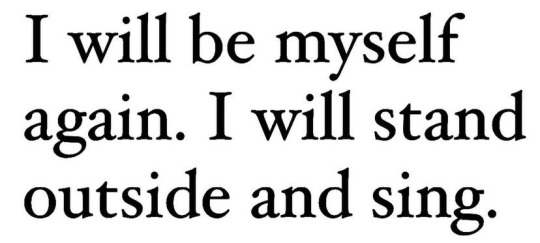

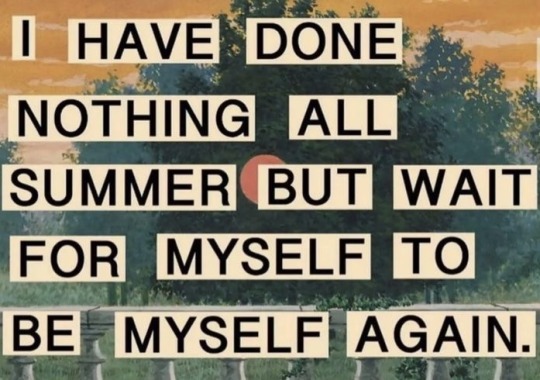


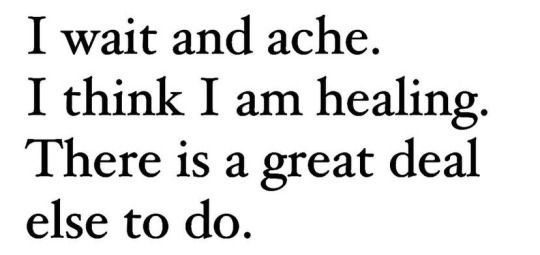
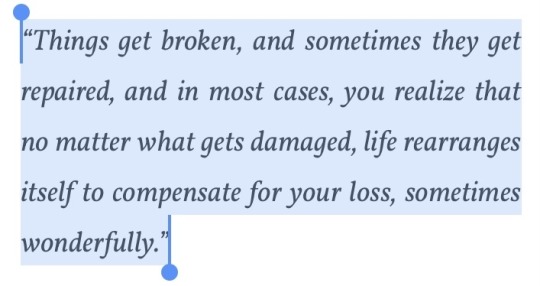

quote from alice notley // open water by caleb azumah nelson // georgia o'Keeffe's letter to russel vernon hunter //sara teasdale's poem, the crystal gazer // all too well - taylor swift // sylvia plath // a little life by hanya yanagihara //memory for forgetfulness by mahmoud darwish, translated by Ibrahim Muhawi
#quotes#comparisons#parallels#compilation#poetry#poetry compilation#web weaving#web weave#webweaving#book quotes#lyrics#taylor swift#syliva plath#hanya yanigahara
4K notes
·
View notes
Text

#just saw the play#fucking hell my god#a little life#jude st francis#willem ragnarsson#hanya yanigahara#a little life play
960 notes
·
View notes
Text
On Death






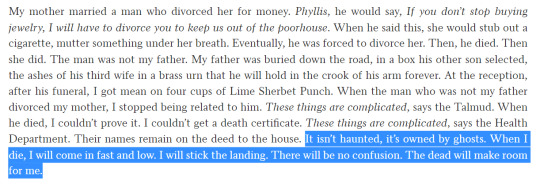
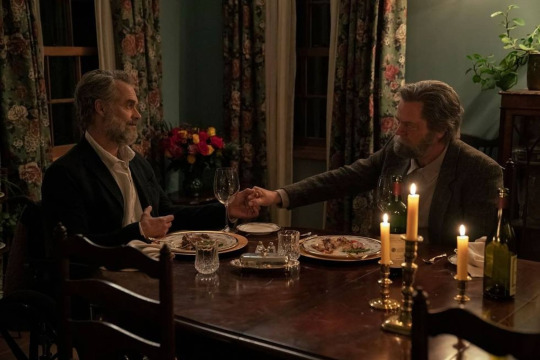
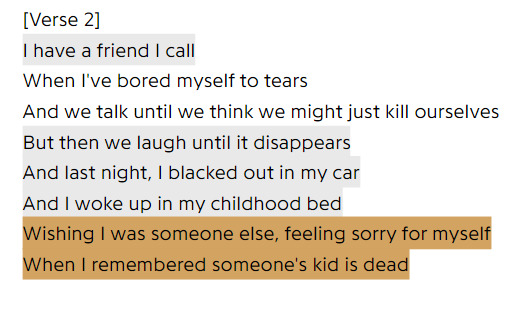




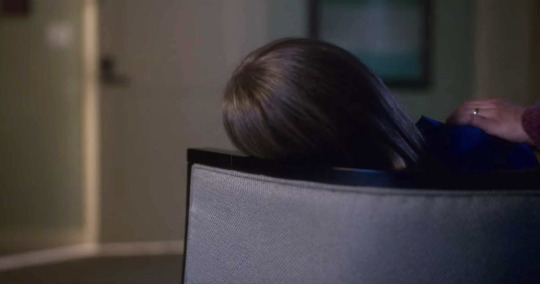
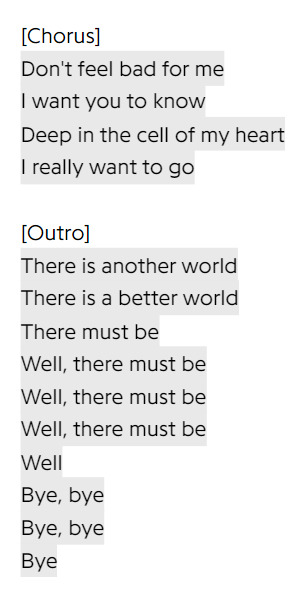
Death in other people’s words
Succession s04e09 / Joyce Carol Oates / Bridge to Terabithia / The Tracey Fragments / Fleabag / Richard Siken / The Last of Us s01e03 / Phoebe Bridgers / Close / Hanya Yanigahara / Gustav Klimt / The Haunting of Hill House / The Haunting of Bly Manor / The Smiths
#web weaving#succession#roman roy#joyce carol oates#bridge to terabithia#the tracey fragment#fleabag#richard siken#the last of us#phoebe bridgers#close#hanya yanigahara#gustav klimt#the haunting of hill house#the haunting of bly manor#the smiths
471 notes
·
View notes
Text

“Who am I? Who am I?”
“You’re Jude St. Francis. You are my oldest, dearest friend. You’re the son of Harold Stein and Julia Altman. You’re the friend of Malcolm Irvine, of Jean-Baptiste Marion, of Richard Goldfarb, of Andy Contractor, of Lucien Voigt, of Citizen van Straaten, of Rhodes Arrowsmith, of Elijah Kozma, of Phaedra de los Santos, of the Henry Youngs. You’re a New Yorker. You live in SoHo. You volunteer for an arts organization; you volunteer for a food kitchen. You’re a swimmer. You’re a baker. You’re a cook. You’re a reader. You have a beautiful voice, though you never sing anymore. You’re an excellent pianist. You’re an art collector. You write me lovely messages when I’m away. You’re patient. You’re generous. You’re the best listener I know. You’re the smartest person I know, in every way. You’re the bravest person I know, in every way. You’re a lawyer. You’re the chair of the litigation department at Rosen Pritchard and Klein. You love your job; you work hard at it. You’re a mathematician. You’re a logician. You’ve tried to teach me, again and again. You were treated horribly. You came out on the other end. You were always you.” “And who are you?" "I'm Willem Ragnarsson. And I will never let you go.
A Little Life. Hanya Yanagihara
Peter Wever, 1950. Embrace painting
#a little life#hanya yanigahara#willem ragnarsson#jude st francis#sad books#book quotes#bookish#bookworm#quotes#book blog#book#love quotes#booksbooksbooks#booklr#book qoute#bookaddict#books
1K notes
·
View notes
Text
Me adding a new dark academia book to my overflowing (and mostly unread) collection:

#dark academia#dark acadamia aesthetic#donna tartt#the secret history#christopher j yates#black chalk#if we were villains#m l rio#ninth house#leigh bardugo#the atlas six#the atlas paradox#olivie blake#the maidens#alex michaelides#catherine house#my dark vanessa#a little life#hanya yanigahara#gay books#books#quotes#love#reading
1K notes
·
View notes
Text
i'm definitely totally normal about jude st. francis
85 notes
·
View notes
Text
here’s a list of spoiler free a little life findings & anecdotes
• JB’s grandmother sang to him in French.
•During their sophomore year of college, Malcolm, Jude, and Willem visited JB everyday while he was in the hospital with a broken wrist.
•Jude is compared to the sea, for his everlasting presence.
•Willem can speak two languages.
•Jude was the first to arrive in their dorm, Malcolm was the second.
•Harold never imagined he would have a child.
•Jude learned to drive in Harold’s car.
•Andy has a twin brother who is also in the medical field.
•Late October is Willem’s favorite time in the city.
•Malcolm’s gaze is described as a lighthouse’s beam, when inspecting spaces.
•JB once carried Jude into the hospital following one of his episodes.
•There are 3 books that Jude read that are mentioned, Emma, On Narcissism, and The Hobbit (which is read to him).
•Willem is an avid coffee lover.
•Malcolm gifted Jude one of his miniature houses for his seventeenth birthday.
•Willem once moved Jude out of the way of an oncoming bike.
•Both Jude and Willem are characterized as optimists.
•One of Jude’s favorite streets is also a street in which Harold lives.
•Willem retaught Jude how to shave in college.
•Jude’s smile is compared to the moon.
#a little life#jude st francis#willem ragnarsson#alittlelife#een klein leven#welcome new little life readers and hello to past readers n rereaders#jb marion#harold stein#malcom irvine#hanya yanigahara
722 notes
·
View notes
Text
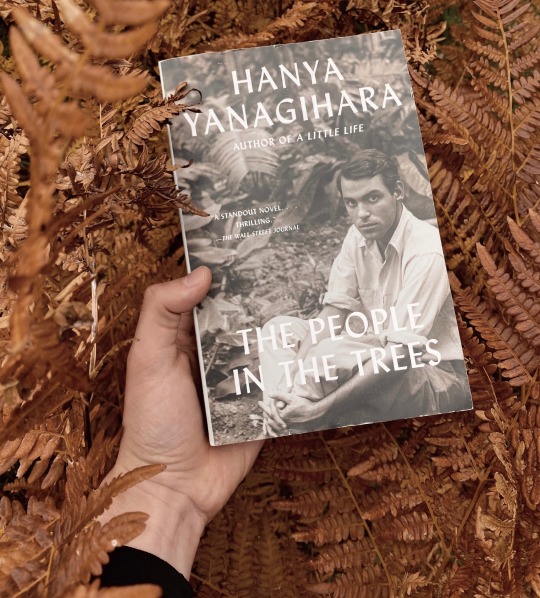

trying to fully enjoy what is left of summer and not smash my head against a wall because this book makes me so angry
#hanya yanigahara#what the fuck count: 175#brown aesthetic#dark academia#on my desk#university#studyblr
762 notes
·
View notes
Text
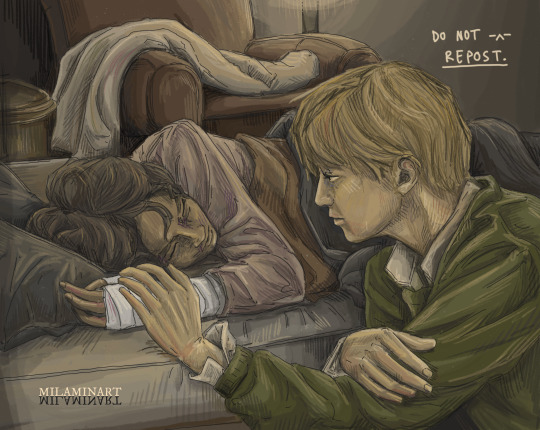
„ …in the first, raw weeks after jude had gotten out of the hospital, willem used to go into his room at odd hours to give himself confirmation that jude was there, and alive. back then, jude slept constantly, and he would sometimes sit on the end of his bed, staring at him and feeling a sort of horrible wonder that he was still with them at all. he would think: If richard had found him just twenty minutes later, jude would have been dead…“ - hanya yanagihara, a little life
my insta for more illustrations & art prints
please do NOT repost without asking for my permission.
#a Little life#a Little life Book#a little life fanart#a little life illustration#hanya yanigahara#a Little life Play#jude st francis#jude and willem#willem ragnarsson#book illustration#digital illustration
323 notes
·
View notes
Text


succession s4 // “a little life” by hanya yanagihara
235 notes
·
View notes
Text
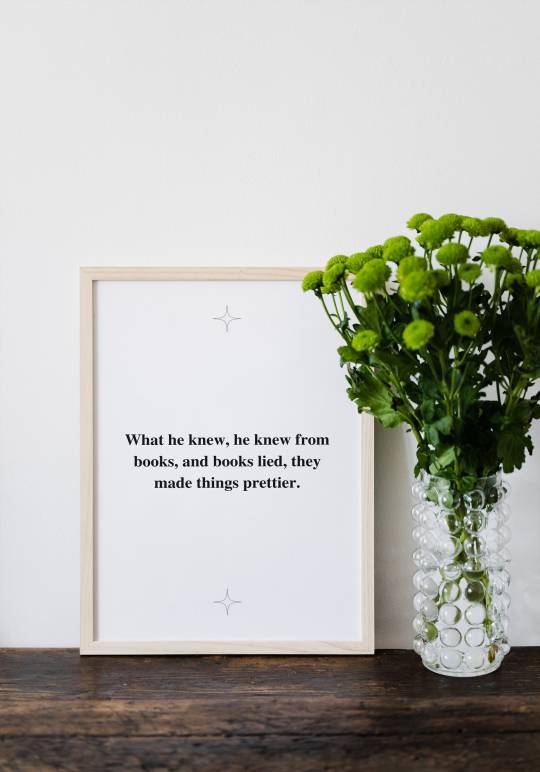
https://www.etsy.com/listing/1603584775/minimalist-a-little-life-booktok-quote?ref=listings_manager_grid
#wall art#wall decor#etsyseller#etsy#etsyshop#a little life#hanya yanigahara#booktok#emotional#sad#jude st francis#nyc#boston#art#love#quote#quotes
49 notes
·
View notes
Text
“a little life” is literally modern au marauders fan fiction. hear me out
jude is remus
willem is sirius
malcom is james
jb is peter
like it makes so much sense, i will not argue with anyone
#james potter#sirius black#remus lupin#peter pettigrew#moony wormtail padfoot and prongs#a little life#reading a little life#marauders x a little life#marauders modern au#all the young dudes#atyd#anything for our moony#wolfstar#willem x jude#hanya yanigahara
92 notes
·
View notes
Text
A Little Life - Harold Pinter Theatre
For anyone who does wish to attend this production, please don’t take the content warnings lightly - the self-harm is graphic and two characters have full-frontal nudity.
I (Freddie) attended the matinee production at the Harold Pinter Theatre in London on Sunday 7th May
THIS REVIEW/ANALYSIS DOES CONTAIN SPOILERS FOR BOTH THE NOVEL AND STAGE PRODUCTION, SO PLEASE BE AWARE!
Trigger Warnings: talks of self harm, child abuse, sexual assault, domestic abuse and more
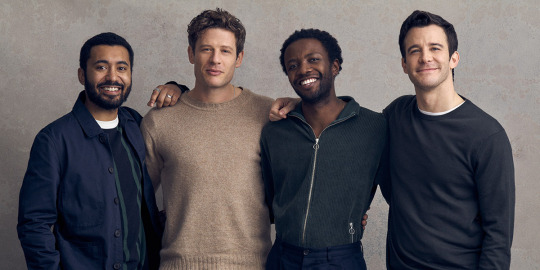
There’s no discernible reaction from the audience when Luke Thompson as Willem makes his entrance onto the stage. He’s wearing a dark blue hoodie, the hood pulled up over his hair - perfectly innocuous, nothing spectacular or grand as he walks about the stage. The lights are still bright, the audience is still chatting, laughter is filling the room. And Luke Thompson as Willem is onstage frying himself some bacon and eggs.
What has struck me again and again whenever I reread A Little Life - because, yes, I get a masochistic kind of joy from putting myself through that pain repeatedly - is the intimacy of it. Naturally with any book, the reader is granted the chance to feel close to the characters, to garner a look at their lives behind the veil. But if you were to ask me, I would say that there are very few - if any - novels that create this illusion as Hanya Yanagihara’s does. For 813 pages you are allowed to experience this life as they are, to experience snapshots of their lives - the good, the bad and the unimaginably horrifying - even as the rest of New York, the rest of the world, goes on as normal, with no thought spared to what is occurring within the walls of Lispenard Street and their subsequent homes.
The awareness that despite what Jude is revealing to the readers about his past, the beyond nightmarish history he has, the world is continuing to go on as normal was perhaps the aspect of the novel I adore so much that I was most scared about losing in adapting it for other mediums.
But from the moment Luke Thompson stepped onto stage, transformed into Willem and beginning to go about his daily life, with the moving images of New York streets surrounding him in his apartment, I knew that my worries had been unfounded. Ivo Van Hove with his unbelievable direction paired with Jan Versweyveld’s set design had found a way to maintain that understanding.
Throughout almost all of the performance, there is no moment of stasis. Be it JB and Malcom painting and working at desks on the right side of the stage, or Andy reading his book in his clinic, or the ever-present Willem and Harold.
The former is always in the same spot on a sofa at the back of the stage, flipping through scripts, determined to make it big as an actor, pouring all of his attention and focus onto learning the lines, dedicated to making his dream a reality, and yet always there ready to support Jude. In the second act, Luke Thompson takes the exact same pose when listening to Jude revealing the details of his childhood, desperate to understand his best friend, and at this stage his lover, in the same way he had been desperate to make it as an actor.
Harold, however, spends much of his time on stage left, stationed at the kitchen set up. Constantly in movement, cooking several dishes throughout the course of the play. A reference, perhaps, to the number of Thanksgivings Jude is reported to have spent with him and his wife, Julia (absent from this adaptation).
Despite the eternal loneliness that James Norton as Jude exudes with just his presence, he is only truly alone for a few moments - the harrowing whisper of “x equals x” that he gasps out after Elliot Cowan as Caleb leaves him naked in the street. It is then that he is alone onstage, laying in his blood, until he is retrieved by his loved ones and taken to rest on Andy’s hospital bed.
It is this detail of James Norton’s performance as Jude that I found the most powerful - which is saying something, considering that I am considering suing him for emotional damages, hasn’t anyone ever told him to think about using his acting powers for good, rather than evil? He captures a side of Jude that I had not previously considered - Jude views himself as a side character in his own life. He doesn’t feel worthy of attention, of his friendships, he is lonely in spite of being surrounded by those he loves the most and as a result feels unable to call out and ask for the help he desperately craves but does not believe that he deserves.
The contrast between this and the fact that Jude is always centre stage is immense and almost disconcerting to watch and caused me to spend the entire performance practically begging him in my head to just turn around, they’re right there!
But this desire to be helped and to be heard is brought to life by the presence of Nathalie Armin as Ana. The first person in Jude’s life to truly care about him, and the only female in this adaptation of the novel. Armin has a commanding presence on the stage, even as she is a mere figment of Jude’s imagination. Dressed in all black, a stark difference to the bright set, allowing her to melt into the darkness when the spotlight focuses on Norton.
In many ways, Ana vocalises the audience’s own thoughts - pleading with Jude to confide in his friends, desperate to stop him from harming himself further, and the relief in Armin’s expression as Jude finally tells Willem his story.
The choice to keep the cast small causes a heavy weight to be put on Elliot Cowan’s shoulders, as he is tasked with portraying three different, truly heinous characters. Even without the costume changes, however, I truly believe it would be possible to tell which of the three he was in each scene.
Cowan gives truly fantastic portrayals of each of the villains of Jude’s life, as Brother Luke he shows the softer touch which allowed for him to manipulate Jude in his innocence, he never handles Norton roughly when playing the part of Brother Luke. Carefully pulling him along, coaxing Jude to trust him to the point that the child does not realise just how wrong it is what Brother Luke asks of him.
This acting from Cowan makes Jude’s words all the more heartbreaking in Act 2 when talking to Willem, as the audience is able to see why Jude insists that Brother Luke was different, that he did love him.
When taking up the role of Caleb, however, he becomes the manifestation of everything Jude believes about himself. He has none of Brother Luke’s gentleness, but all of his intensity and possessiveness. The last that we see of Caleb, is when he lifts Jude up by the arm, Norton’s body used to reflect the words he says - “x equals x”. Being with Caleb has brought to life Jude’s darkest thoughts of himself, and Jude views this as proof that no matter what he will always be the same. Damaged and unlovable, to be blamed for everything he had been subjected to in his youth.
As Dr Traylor, Cowan’s words are clipped and straightforward. He is the most detached of Jude’s abusers, not caring for his name and only referring to him as “a prostitute” and reinforcing what Jude already believes about himself. It is not until Jude’s “release” that we see any true kind of emotion from Dr Traylor. Cowan shows Dr Traylor with a manic kind of joy upon forcing Jude to run from him, all the while on the tail in his car. The chase scene is long, and dramatic with the incredible musicians rising in volume and intensity with their instruments. The length of the scene forces thoughts back to Jude’s earlier response when JB asked about his legs - “I used to run cross country”.
In all of his roles, Cowan has the same commanding presence onstage as Armin. The moment he leaves the wings, regardless of who he is in that moment, the audience’s attention is drawn to him. As though by sheer glares and willpower we will be able to change Jude’s story, that we as mere observers will be able to push against Cowan’s slow, purposeful steps and keep him away from Norton.
Zubin Varla and Emilio Doorgasingh gave masterful portrayals as Harold and Andy, respectively. They are markedly different to the presence of Willem, Malcom and JB - in what proves to be a very physical play, Harold rarely touches his son, while Andy only does so as necessary in his medical examinations of Jude.
This respect for Jude’s boundaries when it comes to physical contact is what truly sets Harold and Andy apart from the other older figures in Jude’s life (those villains played by Cowan). Varla’s portrayal of Harold is always evaluating his own movements, always second guessing himself before moving towards Jude - he does not seek out the easy, casual contact shown by the other three young adults. But when Jude comes to him for comfort, Harold is always eager to provide it.
The final scene of Harold and Jude embracing - Jude in his wheelchair, Harold knelt on the ground in front of him, with the rejected trays of food scattered on the floor around him - when Norton practically falls into Varla’s arms, sobbing into his shoulder, as a screen slowly comes down to hide them, JB on the outside, is one that I believe will stay with me for years to come.
There is an emotion in Varla’s voice when he confides in the audience the story of Jacob, his first son. And in that closing scene we are forced back to that monologue, when he confesses to anyone listening that when Jacob died, there was a little part of him relieved, as that meant it was over. And although it is heartbreaking, it is this statement that makes it no real surprise that when the screen lifts again, Harold is alone in front of that wheelchair to report Jude’s suicide.
Where Armin’s Ana shows the sympathetic side of the audience, the aching desire to hug Jude and promise him it will be okay, to protect him both from the world and himself, Doorgasingh’s Andy exhibits the rougher side of it. His frustration at Jude’s abject refusal to accept help, his anger at watching someone he loves destroy themselves. The hopelessness he feels when his advice goes unnoticed, and his frequent calls to Harold and Willem - often screaming at the two people Jude is closest to, desperate for them to be there for him more.
Andy does not have the same stage presence as many of the other characters do, instead he - and the same can be said for Malcom - almost fades into the background at times. But they are there, ready to pick up the pieces. Both Doorgasingh and Wyatt are spectacular in their characterisations. In the novel, Andy and Malcom show an awareness that they are not the most important people to Jude, that they cannot help him in the ways others can, and in this adaptation, the actors bring that feeling to life.
They are there, working in their own lives, on their own projects. Malcom quietly sees what Jude refuses to acknowledge about his worsening condition and accommodating for it even despite the push back of his best friend. And Andy who can be seen pacing at the side of the stage, calling Jude when he can sense everything is getting too much for him - they are both there for him in their own quiet ways, and their loyalty and love for Jude is never questioned by the audience. It is also important to note that in this adaptation of the novel, neither of these characters address the audience directly - the only two whose focuses are solely within the story with no fourth-wall breaks.
Omari Douglas as JB, on the other hand, stands out more than anyone. First as a result of his costumes - often more brighter than those of his castmates - and then just as how he presents himself. Anyone who watched his performance in It’s a Sin will recall how Douglas’ presence demands to be noticed, and this is carried forth onto the Harold Pinter Stage. He captures the heart of JB’s character - desperate to be heard, to be needed by his friends. Charming in his own way, despite how his messy character causes him to betray his friends at several points in the story.
Douglas transitions well from how JB is around his friends - brash, loud, confident - to how he truly feels when talking to the audience. His voice is softer, he somehow seems a little smaller as he talks about watching Jude, how he feels Willem doesn’t value his friendship as highly as the others, how he feels they don’t need him anymore.
While JB’s drug addiction is rather rushed in this adaptation - it’s discussed at length in the novel - Douglas eloquently displays his anguish to the audience, his desperation to quit. A previously difficult to like character, after having seen him mock Jude’s disability, and betray his trust, the audience is able to empathise and understand him better. And when it is just him and Jude left at the end of the show, Douglas doesn’t say anything, but takes up the same space as had previously been filled by Willem and Malcom. He quietly watches Jude - just as he had before with his painting, only this time, it’s out of concern for his friend, rather than concern for his career and viewing him as a muse.
I have already mentioned how this production brought me to tears on several occasions, however none made me sob more so than Luke Thompson’s monologue at the end before his car crash. Having already read the book several times, I had known that this was coming and yet it didn’t stop me from hoping that somehow I’d misunderstood the plot point and that Willem did actually survive. So when Thompson took centre-stage and I knew what was next, my sister took my hand as the two of us prepared ourselves.
Beyond the tear-jerker of a monologue, when I later considered the adaptation as a whole I wondered over the choice to mention Hemming at that point. Perhaps this mention worked some some of the audience, however for me I felt it should have been mentioned earlier, as it is in the novel. With Willem only mentioning Hemming before he dies and only in reference to Jude, it caused me to reflect somewhat poorly on their relationship. It’s a minor point about the adaptation, however I do wonder if mentioning his older brother earlier, before Jude himself begins to use a wheelchair, it would have been more impactful.
I could sing praises about the chemistry between Norton and Thompson onstage - however considering I have the voice of a dying seal, it’s probably best that I don’t. Instead, I’ll simply say that their interactions in the second act, as Willem confesses his attraction to Jude, and he struggles to understand it caused my heart to skip a beat.
Norton captures Jude’s innocence throughout the play perfectly - from the moments that he slips into his childhood self in flashbacks, to when he’s so unsure in his relationship with Willem, unused to being with someone who does genuinely love and care for him.
All in all, I enjoyed this stage adaptation of A Little Life - if “enjoy” can be the correct word for a production that brought me to tears and caused me to question the meaning of life. It was hauntingly beautiful, heartbreakingly sad and utterly harrowing. I don’t believe I’ve ever been quite so moved by a whole troupe of actors and the way that they characterise their roles. While I certainly have some criticisms and hang-ups about this show and the story in general, I shall save those for another post, hopefully less long and wordy.
Would I return to the Harold Pinter Theatre to watch it again given the choice? Truthfully, I’m not sure. While I fell in love with these actors, the direction, set design and music, I’m unsure if I could watch it again and feel the same level of intensity as I did on this watch. Also, I cried enough to give myself a headache by the end - so if I were to watch again, I’d have to remember to bring a water bottle to ensure I stayed hydrated.
#a little life#hanya yanigahara#jude st francis#willem ragnarsson#malcom irvine#jean-baptiste marion#jb marion#james norton#luke thompson#omari douglas#zach wyatt#ivo van hove#harold pinter theatre#west end#london theatre#uk theatre#theatre review#theatre analyses#plays
62 notes
·
View notes
Text

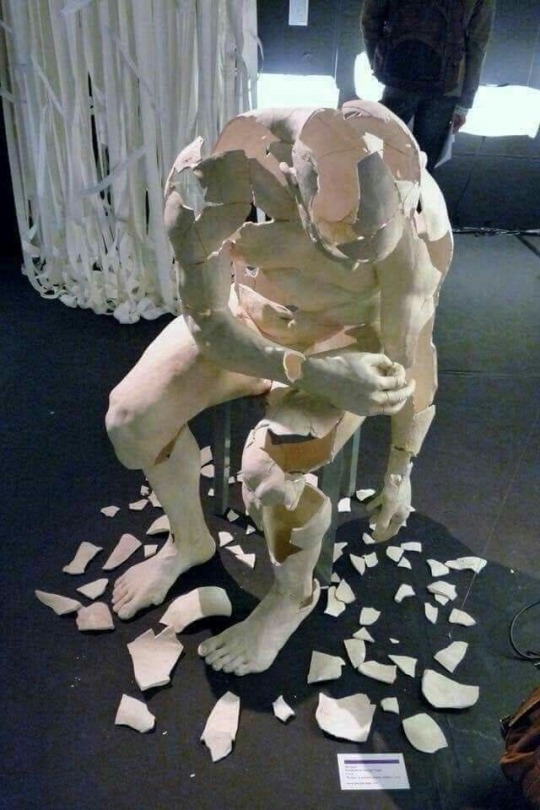
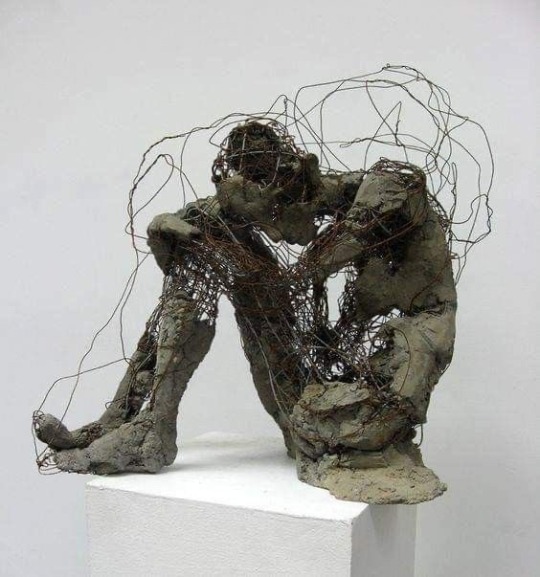
“...things get broken, and sometimes they get repaired, and in most cases, you realize that no matter what gets damaged, life rearranges itself to compensate for your loss, sometimes wonderfully.”
A Little Life. Hanya Yanagihara
#a little life#hanya yanigahara#tan poca vida#book quotes#bookish#bookworm#quotes#book blog#book#booksbooksbooks#booklr#book qoute
86 notes
·
View notes
Text
"He experienced the singular pleasure of watching people he loved, fall in love, with other people he loved"-pg.176 - Jude St.Francis - a little life
26 notes
·
View notes
Text
wish jude could help me with my math rn i know he'd be a real one
#help me pls i hate set theory#a little life#jude st francis#hanya yanigahara#willem ragnarsson#jb marion#malcolm irvine
26 notes
·
View notes